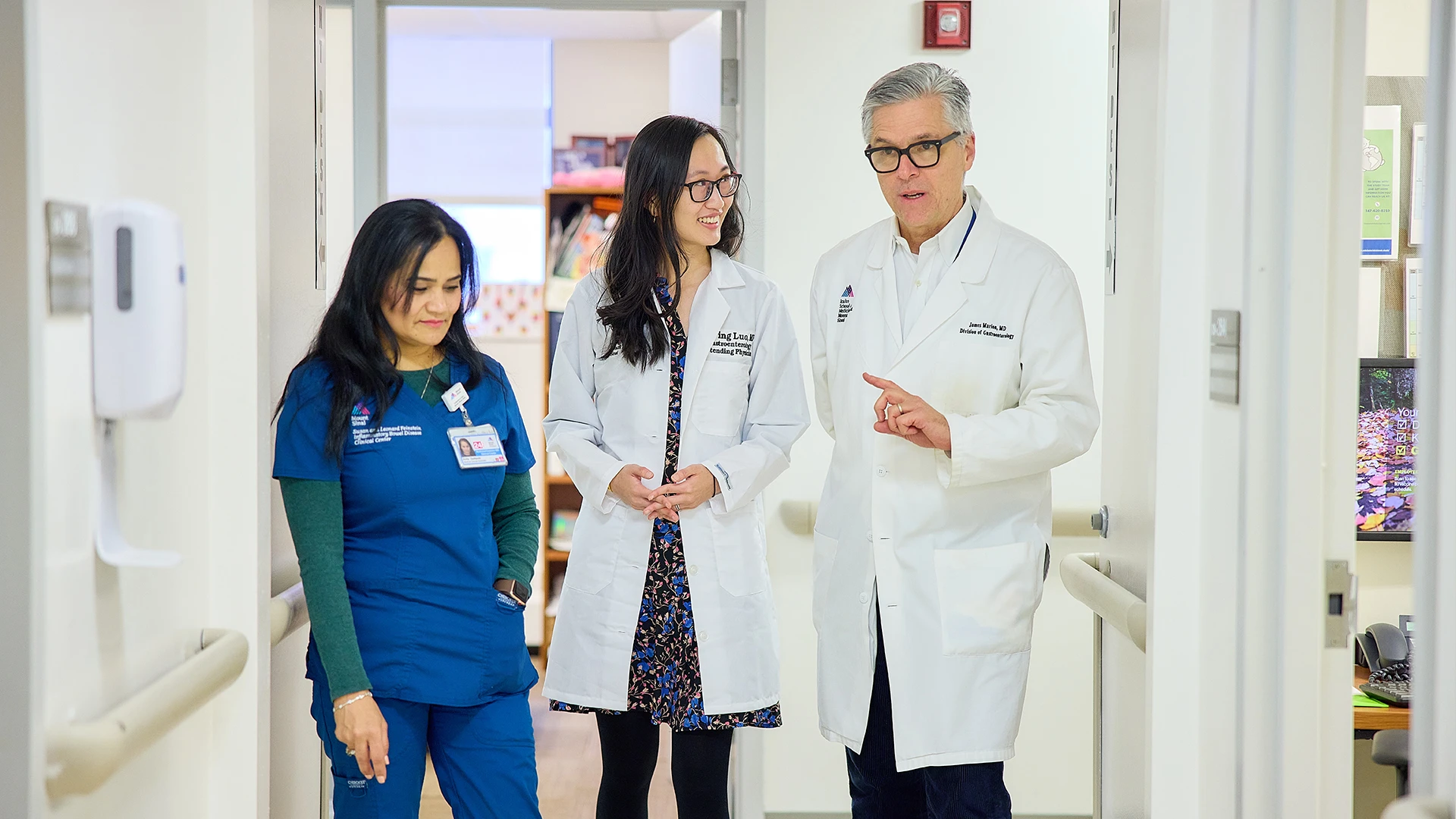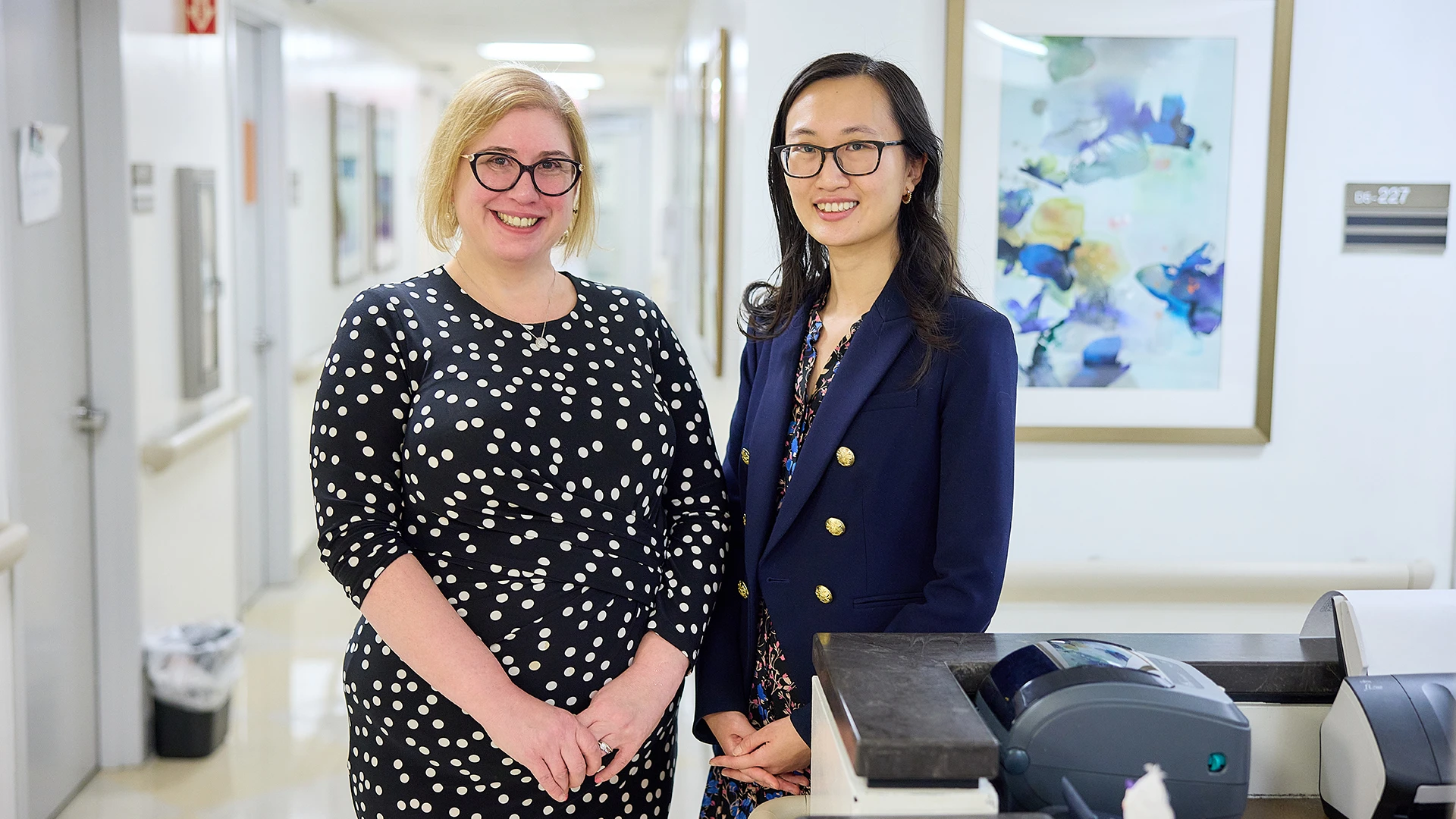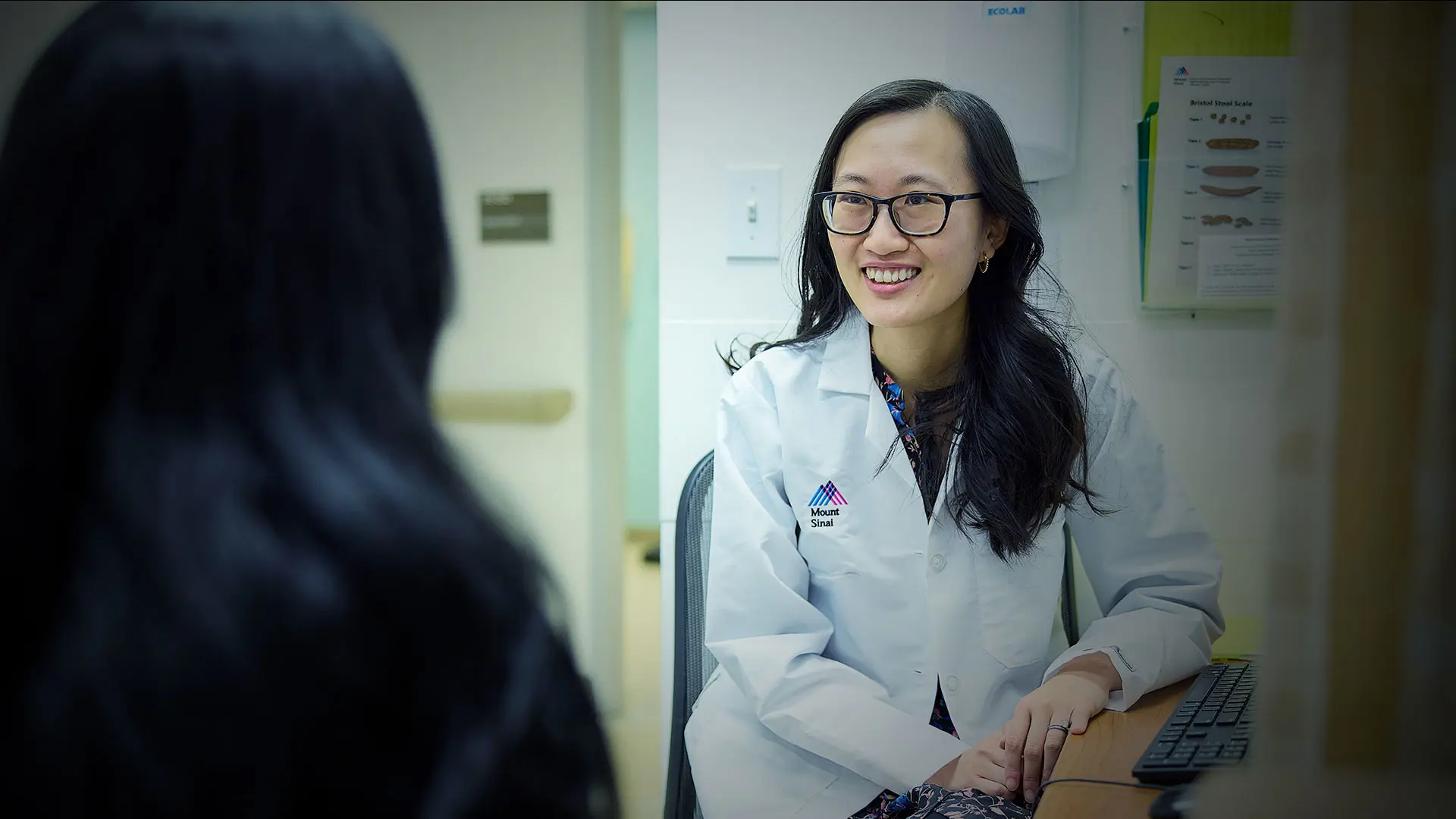Disorders of gut-brain interaction (DGBI) affect up to 40 percent of the global population. Yet the medical community can often be dismissive of these conditions, which can cause symptoms severe enough to require pharmacologic or non-pharmacologic interventions, including behavioral therapies.
These findings were reported in two recent studies led by Yuying Luo, MD, Assistant Professor of Medicine (Gastroenterology) at the Icahn School of Medicine at Mount Sinai, and published in Neurogastroenterology & Motility. The investigations, among other things, urged increased attention to training physicians about this little-understood class of functional GI diseases, whose name was changed to DGBI in 2016 in an effort to reflect their pathophysiology.
Dr. Luo’s clinical work is designed to shed light on DGBI, a term that encompasses dozens of disorders believed to be caused by impaired communication between the gut and the brain, which are connected by the vagus nerve, the largest in the body. Scientists are only now getting a handle on the physical and digestive issues, which include irritable bowel syndrome (IBS), functional nausea, and functional dyspepsia, as well as the psychological conditions, including depression and anxiety, that disruption of this axis can trigger.
“These are patients typically referred to me after they’ve had an extensive workup by other doctors who can’t determine what’s wrong with them,” says Dr. Luo, who was recently named Director of Research at the Mount Sinai Center for Gastrointestinal Physiology and Motility. “Not only are they inadequately treated by the health care system but, as our study showed, more than half of gastroenterology trainees reported noticing some dismissive and stigmatizing attitudes among attendings and fellows toward patients with DGBI. Unfortunately, these attitudes irreparably harm patient care and result in fewer graduating fellows being willing to manage these individuals.”
In addition to identifying trainee attitudes and knowledge gaps regarding patients with DGBI in one of the studies, Dr. Luo collaborated with researchers at the Dr. Henry D. Janowitz Division of Gastroenterology at Mount Sinai to characterize in the second study the burden of pain in DGBI on a global scale. This investigation also identified patterns of pain medication usage around the world for treating these disorders, which collectively represent a substantial burden on health care systems and an incalculable toll on the quality of life of those afflicted. Specifically, the study learned that nearly 15 percent of patients globally with at least one diagnosis of DGBI were on prescription pain medications, about twice as many as their counterparts without a diagnosis of DGBI.
This discovery, based on data from the Rome Foundation Global Epidemiology Study, found that prescription pain medication usage was highest within the anatomic regions for functional esophageal disorders such as functional heartburn and reflux hypersensitivity. For patients with all subtypes of irritable bowel syndrome, prescription pain medication usage was higher compared to other functional bowel disorders.
“Our findings highlight the need for innovative pharmacologic and non-pharmacologic approaches to address pain in patients with DGBI,” stresses Laurie Keefer, PhD, Professor of Medicine (Gastroenterology), and Psychiatry, senior author of both studies, and Director for Psychobehavioral Research in the Division of Gastroenterology. “Within pharmacologic approaches, we believe the emphasis should be on the use of non-opioid medications such as neuromodulators, which are effective at targeting the central modulation of pain processing pathways. The expanding science showing a mechanistic link to the brain-gut axis has underscored the benefit of non-pharmacologic therapies in acute pain management.”

Yuying Luo, MD, center, discusses a DGBI case with medical assistant Anita Gadtaula and James F. Marion, MD, a Mount Sinai gastroenterologist.

Laurie Keefer, PhD, worked with Dr. Luo on a study showing that non-opioid pain medications should be emphasized for treating DGBI.
Dr. Keefer has been a pioneer in the emerging field of gastropsychology, where specially trained psychologists deliver cognitive behavioral therapy and hypnotherapy to people with symptoms specific to gut-brain disorders. “Gut-brain psychotherapies can be highly customized to the needs of the patient and can be used across the spectrum of pain-inducing DGBI,” she explains. “We firmly believe that the threshold to introduce brain-gut behavioral therapies must be significantly lowered.”
A strong call to action also emanated from the study identifying trainee knowledge and attitude gaps in DGBI. Researchers recommended what would amount to a culture change, with competency-based education initiatives at the trainee level to break down the barriers that often result in burnout and frustration among providers treating these patients. Those barriers, reported by the majority of trainees in the study, included inordinate time spent on management, such as patient portal communications, telephone calls, and prior authorizations for medications, as well as the absence of a multidisciplinary team for referrals. The study also called for mechanisms to provide timely feedback to attendings who demonstrate stigmatizing attitudes and behavior toward patients with DGBI.
To those ends, Dr. Luo, Brijen Shah, MD, Professor of Medicine (Gastroenterology), and Medical Education, at Icahn Mount Sinai, and Christopher Vélez, MD, a neurogastroenterologist at Massachusetts General Hospital, developed a pilot program across six institutions (including Mount Sinai) designed to change the way fellows are trained in DGBI.
“Because these disorders are so common, gastroenterologists can’t simply take the attitude they’re going to refer DGBI patients to someone else,” declares Dr. Luo. “They have to be comfortable seeing these patients in their practices and in making and communicating a comprehensive diagnosis of DGBI. And that must start with effective education and training.”

Dr. Luo and Brijen Shah, MD, are among those developing a new approach to training fellows in DGBI.
Featured

Yuying Luo, MD
Assistant Professor of Medicine (Gastroenterology)

Laurie Keefer, PhD
Professor of Medicine (Gastroenterology), and Psychiatry

Brijen Shah, MD
Professor of Medicine (Gastroenterology), and Medical Education
